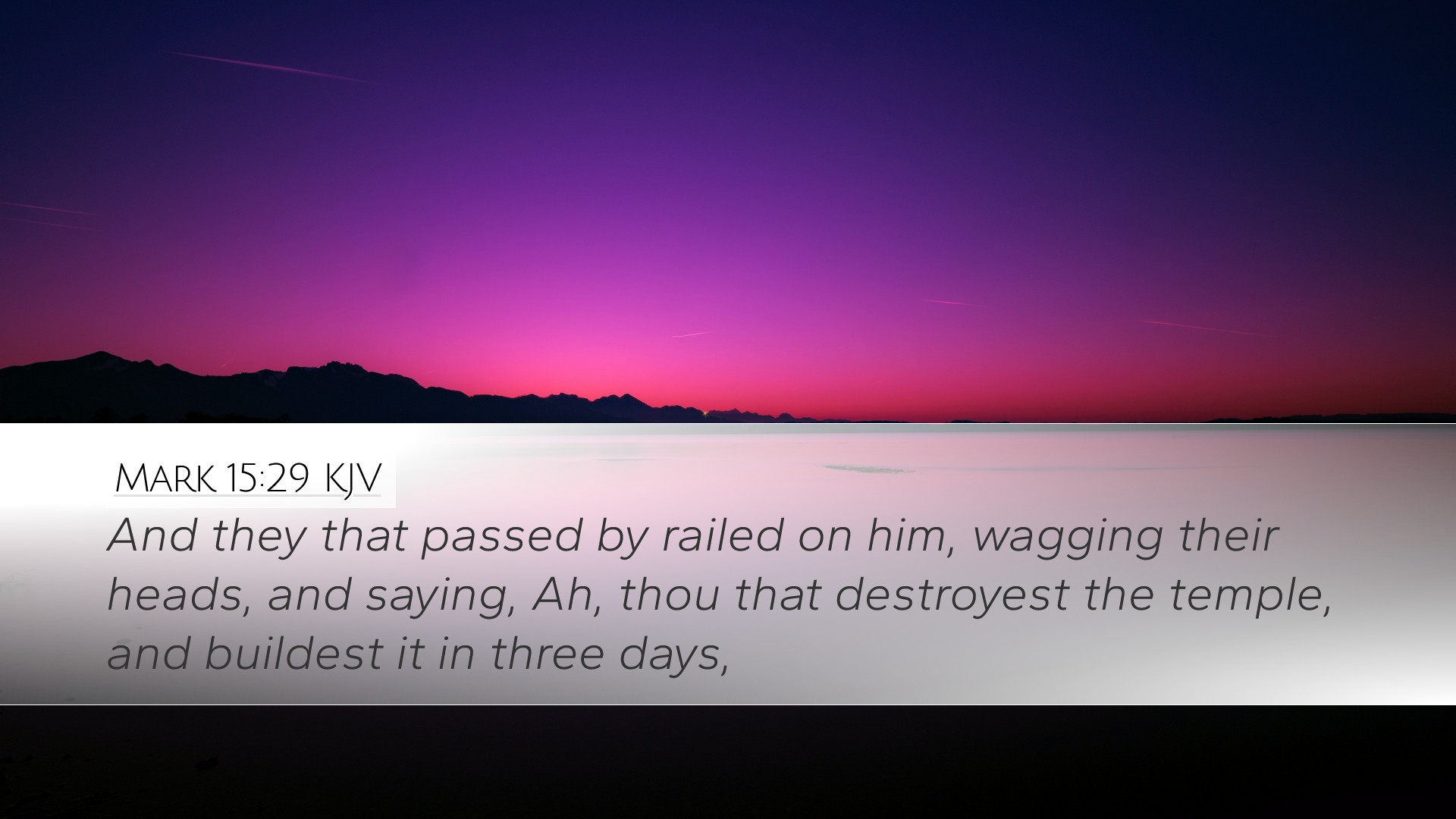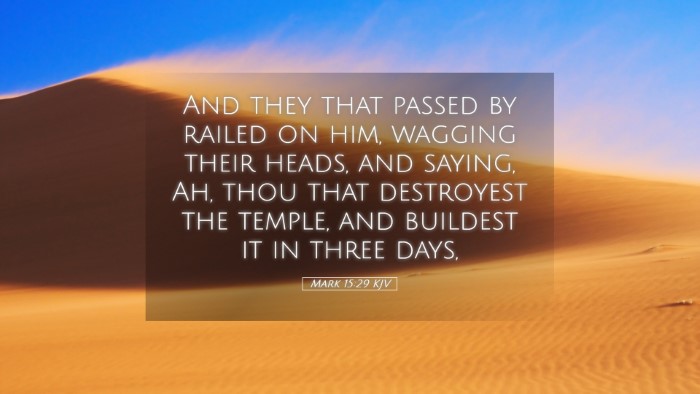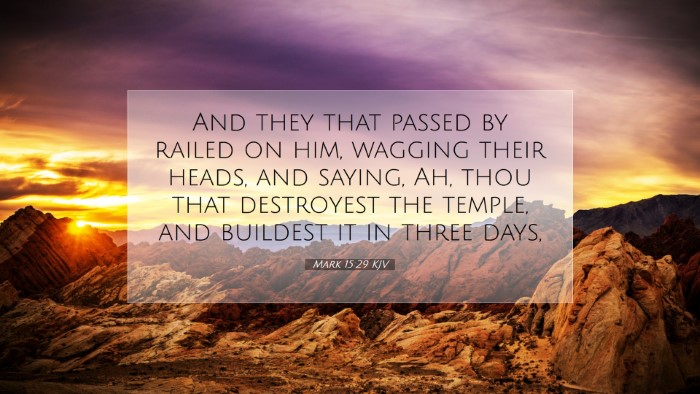Bible Commentary on Mark 15:29
Mark 15:29 states: "And they that passed by railed on him, wagging their heads, and saying, Ah, thou that destroyest the temple, and buildest it in three days," This verse captures a poignant moment in the crucifixion narrative, highlighting the scorn and ridicule faced by Jesus from those who were observing his suffering.
Contextual Analysis
This moment occurs during the crucifixion of Christ, shortly before his death. The mocking of Jesus serves as a fulfillment of prophetic scripture, emphasizing the depth of human rejection of the divine Christ. The public derision reflects society's misunderstanding of Jesus' mission and nature.
Matthew Henry emphasizes that the insults directed at Jesus not only attacked his person but also distorted his mission. The mocking crowd represents humanity's collective rejection of God’s redemptive plan through Christ.
Exegesis and Interpretation
According to Adam Clarke, the phrase “destroyest the temple” is a reference to Jesus' earlier statements regarding the temple of his body (John 2:19-21). Here, the accusers misapply Jesus’ words, misunderstanding the purpose of his death and resurrection. This misunderstanding is further compounded by the belief that physical temples were of utmost importance, while missing the spiritual reality that Jesus embodies.
Albert Barnes notes that the act of “wagging their heads” signifies disdain. This gesture is emblematic of a lack of respect and is often associated with mockery in the Biblical context. The verbal attack—“Ah, thou that destroyest the temple”—suggests an irony; what was meant for condemnation would actually become the means of salvation.
Theological Implications
The layered meanings behind this mockery expose the theological depths of Christ’s sacrifice and the nature of human rebellion against divine authority. It underscores the contrast between worldly understanding and divine truth. The very people who testify against Jesus are fulfilling the prophecies concerning the suffering Messiah.
Matthew Henry asserts that the mockers' jests are an essential part of the passion narrative, focusing our attention on Christ’s obedience unto death, amplifying the gravity of his sacrifice for humanity. Theologically, their scorn may be seen as reflective of broader societal attitudes towards divine truth throughout the ages.
Application for Pastors and Theologians
The message of Mark 15:29 invites pastors and theologians to consider the nature of ridicule in the journey of faith. When faced with skepticism and rejection, followers of Christ can find encouragement in knowing that Christ himself endured the scorn of the world.
- The Experience of Mockery: Recognizing that ridicule is a shared experience among believers empowers pastors to guide their congregations through trials.
- Understanding Scripture's Fulfillment: Emphasizing the fulfillment of prophecy in the life of Christ can deepen a congregation’s appreciation of scripture and its cohesive message.
- Engaging with Cultural Critique: Pastors are challenged to navigate modern cultural critiques of faith, drawing parallels from Christ’s own experience with mockery.
Conclusion
Mark 15:29 serves as a profound reminder of the scorn that surrounds the cross and the revolutionary nature of Jesus’ mission. Both in the past and present, mockery serves as a stark acknowledgment of the conflict between earthly wisdom and divine truth. Yet, within this tension lies the promise of resurrection and hope, which should inspire faithful endurance among believers.


